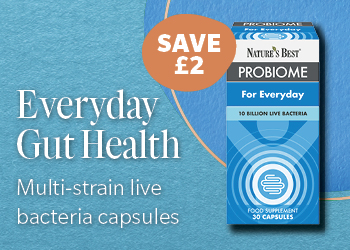
43+ Years of experience
152,000 Happy customers
300 Different products


Big savings on best sellers
Multi-buy bargains
Discounts on supplements, pet health, and aromatherapy oils

Whether you need help choosing a supplement, have a question about a product or want to chat about your health goals, our friendly team are available 9am-5pm, Monday to Friday, to call, email or live chat.





- Over 43 years of trusted nutrition
What started as a humble catalogue in1981 has blossomed into your go-to source for nutritional supplements. We’re here to be your trusted partner on your health journey, and we’re proud of that!
- Grounded in science, guided by nature
Every product we create is a beautiful blend of scientific rigor and nature’s wisdom, with most of it crafted right here in the UK. Our rigorous testing ensures that our labels are as honest as our intentions.
- A commitment to integrity
We believe in keeping it real. No underdosing, no overpromising, and no hiding behind fleeting trends. Our formulations are crafted for real people who crave genuine results—because you deserve nothing less.








Eye Health














